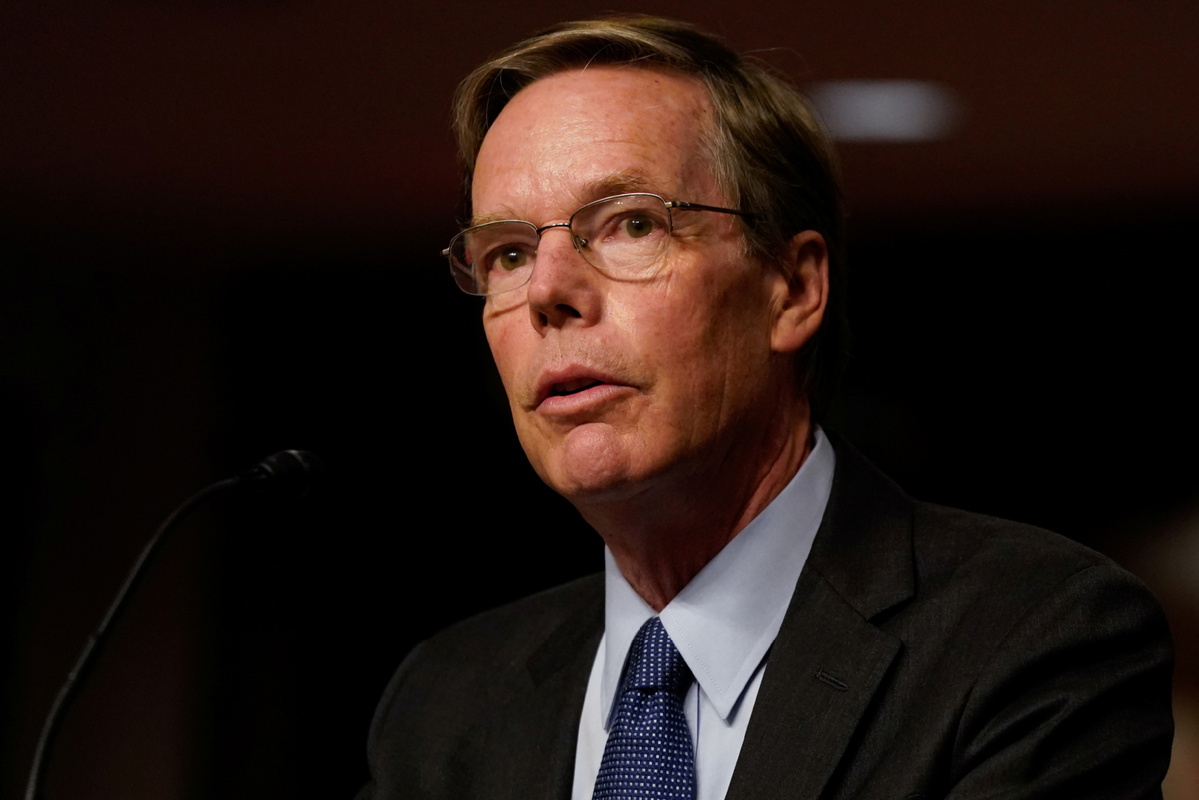US nominee for ambassador to China stresses need to avoid 'accidental conflict'


US President Joe Biden's pick for ambassador to China told lawmakers Wednesday that Washington needs to have "effective channels" with Beijing to mitigate "an accidental conflict" and to maintain peace between the two countries.
In testifying before the Senate Foreign Relations Committee, Nicholas Burns, a career diplomat, adhered to Secretary of State Antony Blinken's approach to China of being "competitive when it should be, collaborative when it can be and adversarial when it must be".
The rhetoric by Blinken in March was criticized as "a thinly veiled attempt to contain and suppress China" by the Chinese Foreign Ministry in late July.
Reflective of how confrontational the Congress' upper chamber committee members' attitude toward China-related issues is, Burns was asked only once about working with China on climate change during the two-hour hearing, and not at all about cooperating with Beijing on human-to-human engagement and other issues he listed in his opening statement.
Burns himself also took a tough line on dealing with China, as many nominees do on such occasions in Congress, where the only consensus the members seem to have is countering what they deem a "strategic competitor".
But the nominee to be the 13th US ambassador to China highlighted the importance of intensive efforts in keeping communications channels open for risk management between the two countries.
"Part of what we will need to do in the US-China relationship is mitigate the possibility of an accidental conflict and to maintain the peace between our two countries and in the region," he said.
In an apparent allusion to "The China Sleepwalking Syndrome", a recent article by Joseph Nye, his Harvard University colleague, Burns said the US doesn't want to find itself "being sleepwalkers into a conflict with China".
"So part of the job of an American ambassador to China, if I'm confirmed, will be to work with my colleagues in the US government to make sure we have those effective communications channels with the Chinese leadership," he said.
When asked to advise on toolboxes of dealing with China-related issues, Burns suggested the lawmakers first travel to the country for conversations.
"First and foremost, when the coronavirus mercifully ends … I hope that members of Congress from both parties will travel to China, and if I'm confirmed, I would like to help you to do that," Burns said.
"I think it's very important for members to travel — they're members of Congress, and ultimately most important for the president to have direct conversations as he is seeking to do; he's had phone conversations with President Xi Jinping," Burns said.
Burns was grilled repeatedly on the Taiwan issue, particularly whether Washington needs to "revisit the issue of strategic ambiguity".
"My own view is that we're better off, and will be more effective, in staying with the One China policy of the last four decades. We recognize the People's Republic of China as the sole legal government of China, and yet we have unofficial relations with Taiwan," Burns said.
Every president, Republican and Democrat, has followed that policy, he added.
Burns, former under-secretary of state for political affairs, was tapped by Biden two months ago for the critical post at a time when relations between the world's top two economies have plunged to the lowest point since they forged diplomatic ties in 1979.
Burns described the bilateral relationship as "complicated and consequential" and disputed the claim that "the East is rising, and the West is in decline", citing what he said were the most important US comparative advantages in allies and partners.
Though competition with China and criticism of the country had been the hearing's focus, Burns noted that climate is perhaps the "signature issue" and an area of cooperation in a relationship that has been made so difficult "because we're competing, and we're engaging at the same time".
"We will cooperate with the PRC where it is in our interest, including on climate change, counter narcotics, global health, and of course on non-proliferation," he said at the beginning of the testimony, using the initials of the People's Republic of China.
"It's to our benefit to maintain engagement between our peoples as well, including students, scholars, diplomats and journalists, so long as America's laws are respected," he added.
Burns, 65, served as US ambassador to the North Atlantic Treaty Organization (2001-2005) during the presidency of George W. Bush, and as US ambassador to Greece (1997-2001) under President Bill Clinton. Burns was a spokesman for the State Department between 1995 and 1997.
"The selection of Ambassador Burns reflects Biden's recognition that relations with China are complex and require a seasoned diplomat to deal with them," Chas W. Freeman, US assistant secretary of defense between 1993 and 1994, told China Daily in an earlier interview.
































